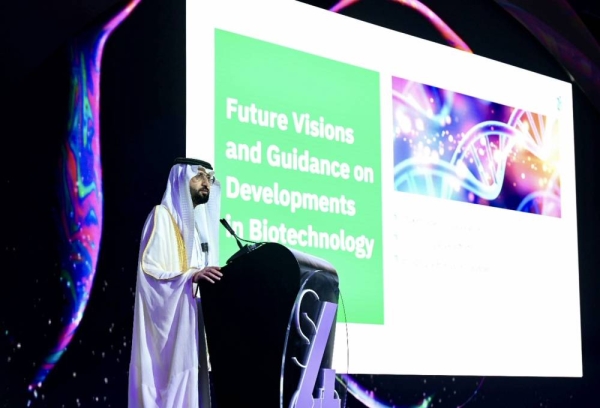The CEO of the Saudi Food and Drug Authority (SFDA), Dr. Hisham Aljadhey, recently discussed the National Biotechnology Strategy at the 4th Annual International Conference of the Saudi Society of Clinical Pharmacy (SSCP). The strategy aims to position Saudi Arabia as a future leader in biomanufacturing and medical innovation, with a focus on vaccines, bio-localization, genomics, and plant improvement. The SFDA plays a crucial role in advancing this strategy by establishing regulations and guidelines for biotechnology, including clinical trial protocols, manufacturing standards, clinical evaluation and assessment, and post-market safety monitoring.
The National Biotechnology Strategy seeks to integrate biotechnology across various sectors to improve the quality of life in Saudi Arabia. This includes the development of medical products, medicines, agriculture and food, and the industrial sector. To support this vision, the SFDA has restructured its departments to focus on specific biotechnology areas within food, medicine, medical devices, and research laboratories. Dr. Aljadhey highlighted the importance of collaboration among stakeholders in shaping the future of biotechnology regulation, emphasizing the need for innovative solutions tailored to public health needs, attracting global investments, and securing Saudi Arabia’s position as a global leader in biotechnology.
In order to achieve the goals outlined in the National Biotechnology Strategy, the SFDA has developed a comprehensive framework that includes regulations and guidelines for biotechnology. This framework covers a wide range of areas, including clinical trial protocols for biopharmaceuticals, manufacturing standards for bioproducts, clinical evaluation and assessment, and post-market safety monitoring. By adapting its structure and creating new departments focused on specific biotechnology areas, the SFDA is taking proactive steps to support the implementation of the strategy and drive innovation in the biotechnology sector.
Dr. Aljadhey emphasized the importance of active engagement from stakeholders in shaping the future of biotechnology regulation in Saudi Arabia. He urged collaborative efforts to develop biotechnologies that meet the public health needs of the country, foster innovation, attract global investments, and strengthen Saudi Arabia’s position as a global leader in biotechnology. By working together, stakeholders can play a critical role in advancing the National Biotechnology Strategy and positioning Saudi Arabia as a hub for biomanufacturing and medical innovation.











